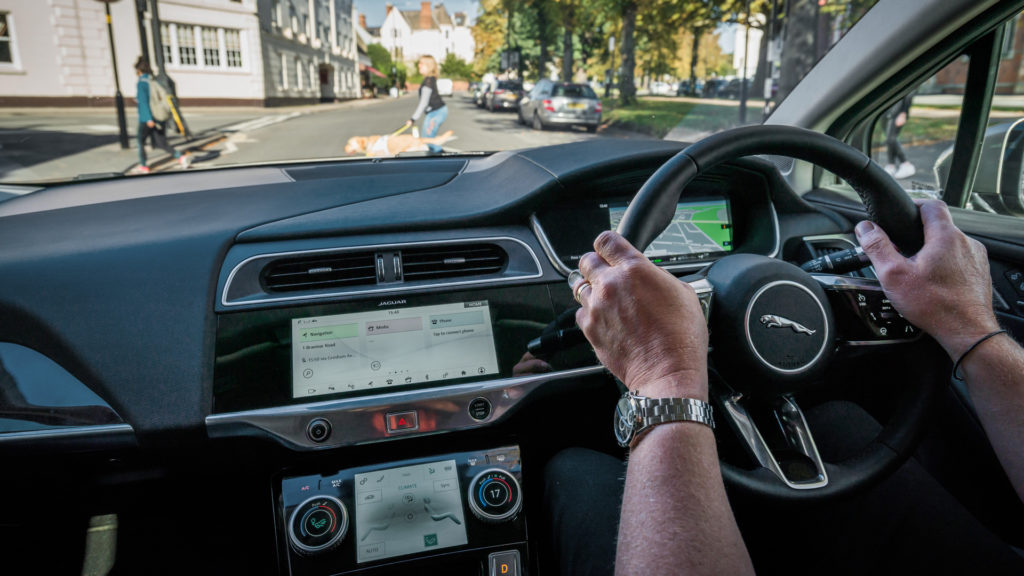Last updated on April 22nd, 2020 at 11:31 am
Most modern-day vehicles come with some form of entertainment system built-in. Be it through the audio package or a fully-fledged infotainment system. The latter has evolved over the years, to the point where it's more complex than ever before for a manufacturer to integrate its services.
Through most infotainment systems found within most modern-day EVs, you can tweak the behaviour of a vehicle, access climate controls, use it to navigate, make and receive calls, create a Wi-Fi hotspot, and in some cases even stream your favourite shows from Netflix and YouTube (among other service providers), plus a lot more.
The concept of having a car, truck or van in 2019 goes far beyond its primary purpose; manufacturers now integrate complex systems that make owning a vehicle more than just about the driving experience – it's about the entire journey; from summoning your car from afar to sitting in the driver's seat and navigating your way through traffic.
Part of that experience comes from the vehicle's connected services. Traditionally, automakers would seek the help of third-party companies or operators to enable such amenities. The issue that crops up is when automakers have to integrate with multiple partners, service providers and systems. To the point where they're not in full control of their own vehicles – vulnerabilities can get exposed to hackers and thieves, whereby they could potentially unlock, steal or even control a vehicle from a remote location.
To better manage a vehicle's system, an automaker has to have end-to-end control of its vehicles. For example, if a manufacturer releases a new vehicle with built-in 4G connectivity, 10-15 years down the line it could be made redundant. Furthermore, connectivity costs will set the manufacturer more money if they're tied into a single operator.
To better understand the subject, WhichEV spoke to Jacques Bonifay, CEO and founder of Transatel, a telecom corporation that works with car manufacturers: Jaguar, Land Rover and Jeep.
Transatel, in this space, is an MVNO (Mobile Virtual Network Operator) enabler or MVNE (Mobile Virtual Network Enabler), which means they provide companies such as Jaguar, Land Rover and Jeep a means of operating with different mobile operators around the globe, without having to deal with each of them individually. In essence, Transatel is the middle man – they don't have a direct relationship with the automakers' customers, and they themselves, don't use the network for their own products or services.
Here, Jacques Bonifay said, “car manufacturers need to be independent of mobile operators and control what they provide to the vehicle; they [the car manufacturers] need to manage the entire ecosystem, from personal apps to services.” To break away from mobile operators, he said car manufacturers should look into an MVNO model, whereby they take on the ‘Do-It-Yourself approach'. However, this can be a lengthy, costly and complicated process – Transatel makes that transition a lot simpler.
In our interview with Jacques Bonifay, he explained how a car manufacturer would approach a global launch of a connected vehicle: “to deploy your solutions, you need something that works worldwide. If you integrate with Vodafone in Europe, then go to AT&T for North America, then to Telefonica for South America and China Unicom for Asia – things can get complicated.”
“You [the automaker] have to integrate with each of them; so when you can use one service [such as Transatel] that localises all of them, it makes the global rollout of a car much simpler as you only need one system. This system should be unique to yourself, which means you don’t have to use other networks, whereby you can choose which operator you wish to work with and state your terms for integration.”
Ultimately, what Jacques Bonifay was trying to say is: having a single, global solution makes having a connected vehicle a lot simpler. With consumers now looking into what service an automaker can provide, it's increasingly important for them to provide a comprehensive package. To paraphrase Jaques' words: “it's not only about the price, design and brand of the vehicle” – there are now a lot higher expectations from consumers.
For example, would you prefer to have a car that provides over-the-air (OTA) updates and grants you access to new features every couple of months, or would you rather own one that never changes after it's left the factory? We suspect it's the former, especially if the OTA updates offer you a better experience.
Transatel is part of the NTT Group and offers Ubigi, a customer-facing mobile data service to vehicle manufacturers around the world. You can find out more about the company, by visiting Transatel's website.
